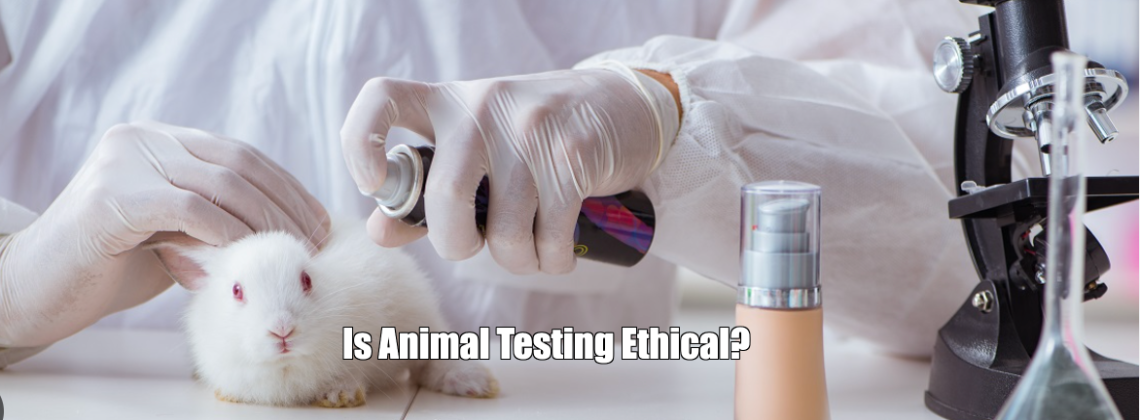
Is Animal Testing Ethical?
Summary
Pros
- Scientific Advancements: Animal testing has led to numerous medical breakthroughs and advancements in understanding diseases.
- Safety Testing: It helps ensure the safety and efficacy of pharmaceuticals, vaccines, and other products before they are used in humans.
- Regulatory Compliance: Animal testing is often required by regulatory agencies to assess the potential risks of new products.
- Human Health Benefits: The knowledge gained from animal testing contributes to improving human health outcomes and saving lives.
Cons
- Animal Welfare: It raises ethical concerns about the welfare and treatment of animals subjected to experimentation, including pain and suffering.
- Moral Considerations: Using animals for human gain without their consent is deemed morally questionable by many.
- Reliability Issues: Some argue that findings from animal testing may not always translate accurately to humans, leading to potential risks or inefficacies in treatments.
- Alternatives: Advances in technology offer alternatives to animal testing, raising questions about its continued necessity.
Animal testing, or animal experimentation, involves using non-human animals in experiments to test the safety and efficacy of products, especially in pharmaceuticals and cosmetics, and to understand biological processes and diseases. This practice has contributed to significant advancements in medical and scientific knowledge, leading to new treatments and vaccines.
However, it raises ethical concerns due to potential harm and suffering caused to animals. Despite regulatory measures to ensure humane treatment, the debate over its ethical justification continues. With technological progress, there’s a growing emphasis on developing alternative methods that could reduce or eliminate the need for animal testing.
The ethical considerations surrounding animal testing have sparked a contentious debate among scientists, ethicists, and the general public. This complex issue is fraught with questions of morality, scientific necessity, and the pursuit of medical advancements. In exploring whether animal testing is ethical, it’s crucial to delve into the multifaceted aspects of its implementation, the moral dilemmas it presents, and the alternatives that could potentially reduce or eliminate the need for animal subjects in research.
The Case for Animal Testing: Scientific and Medical Advancements
Proponents of animal testing argue that it is a necessary tool for advancing medical and scientific knowledge. The use of animals in research has led to significant breakthroughs in understanding disease mechanisms, developing treatments for various illnesses, and ensuring the safety and efficacy of new pharmaceuticals and vaccines.
The argument here hinges on the ethical principle of the greater good; the benefits to humanity that arise from these advancements are deemed to outweigh the moral cost of using animals in research. From this perspective, animal testing is ethical as it contributes to the alleviation of human suffering and the saving of lives.
Ethical Considerations and Animal Welfare
Critics of animal testing challenge its ethical validity by emphasizing the rights and welfare of animals. They argue that subjecting animals to testing is inherently unethical, as it inflicts pain, suffering, and often death on sentient beings who cannot consent to their participation.
This perspective is grounded in the moral principle of respect for all living creatures and the belief that animals have intrinsic value beyond their utility to humans. The ethical objections extend to the methods of animal testing, which critics claim are often cruel and inhumane, questioning whether the potential benefits to human health justify the moral cost.
Regulatory Frameworks and Ethical Oversight
The ethical landscape of animal testing is further complicated by the existence of regulatory frameworks designed to ensure the humane treatment of animals used in research. Laws and guidelines, such as the Animal Welfare Act in the United States and the Directive 2010/63/EU in the European Union, mandate standards for care and housing, as well as requiring researchers to consider alternatives to animal testing and to minimize animal suffering.
These regulations reflect an attempt to balance the ethical considerations of animal welfare with the perceived necessity of animal research. However, the effectiveness and enforcement of these regulations are often points of contention, with critics arguing that they are insufficient to protect animals from unnecessary harm.
Alternatives to Animal Testing and the Future of Research
The debate over the ethicality of animal testing is also influenced by the development and adoption of alternative research methods. Technological advancements, such as in vitro (test tube) techniques, computer modeling, and the use of human cell cultures, offer the potential to reduce or even eliminate the need for animal testing. These alternatives not only address ethical concerns but may also provide more accurate and relevant data for human health.
The ethical argument here supports the transition away from animal testing on the grounds that if scientifically viable alternatives exist, the moral justification for using animals in research weakens.
Also read: Is Adoption Ethical? Find Out About It!
Conclusion
In conclusion, the question of whether animal testing is ethical cannot be answered unequivocally. The ethicality of animal testing is contingent upon a complex interplay of factors, including the perceived necessity for medical and scientific advancements, the moral value assigned to animal life and welfare, and the availability of alternative research methods.
While the achievements attributed to animal testing cannot be denied, the moral cost of such practices continues to provoke significant ethical debate. Ultimately, the ethical review of animal testing demands a nuanced approach, one that carefully weighs the benefits to humanity against the rights and welfare of animals, while also embracing technological innovations that could pave the way for a future with reduced or no animal testing.
The ongoing dialogue and ethical scrutiny are essential in guiding the responsible conduct of research that seeks to balance the pursuit of knowledge with the imperative of compassion.

